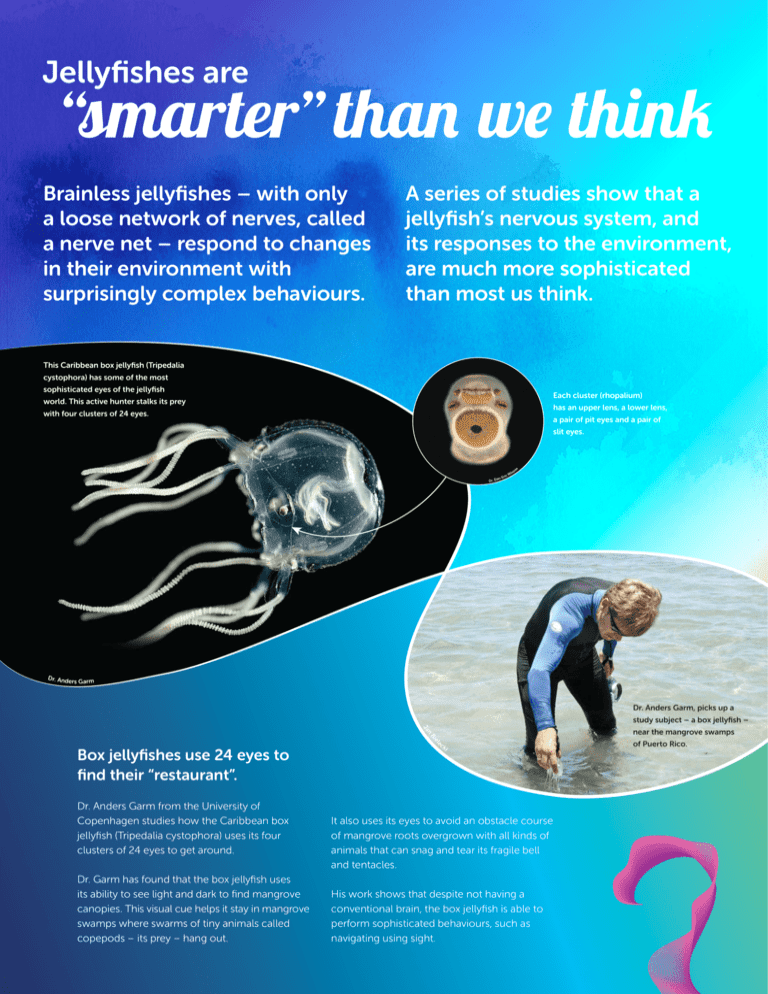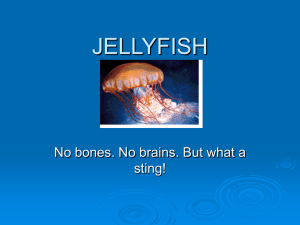Brainless jellyfishes – with only a loose network of nerves, called a
advertisement

Jellyfishes are ‘‘smarter’’ than we think Brainless jellyfishes – with only a loose network of nerves, called a nerve net – respond to changes in their environment with surprisingly complex behaviours. A series of studies show that a jellyfish’s nervous system, and its responses to the environment, are much more sophisticated than most us think. This Caribbean box jellyfish (Tripedalia cystophora) has some of the most sophisticated eyes of the jellyfish Each cluster (rhopalium) world. This active hunter stalks its prey has an upper lens, a lower lens, with four clusters of 24 eyes. a pair of pit eyes and a pair of slit eyes. Er anDr. D i ic N on lss Dr. An ders Garm Dr. Anders Garm, picks up a study subject – a box jellyfish – n Ja Dr. Anders Garm from the University of Copenhagen studies how the Caribbean box jellyfish (Tripedalia cystophora) uses its four clusters of 24 eyes to get around. Dr. Garm has found that the box jellyfish uses its ability to see light and dark to find mangrove canopies. This visual cue helps it stay in mangrove swamps where swarms of tiny animals called copepods – its prey – hang out. ec el Bi Box jellyfishes use 24 eyes to find their “restaurant”. ki It also uses its eyes to avoid an obstacle course of mangrove roots overgrown with all kinds of animals that can snag and tear its fragile bell and tentacles. His work shows that despite not having a conventional brain, the box jellyfish is able to perform sophisticated behaviours, such as navigating using sight. near the mangrove swamps of Puerto Rico.











